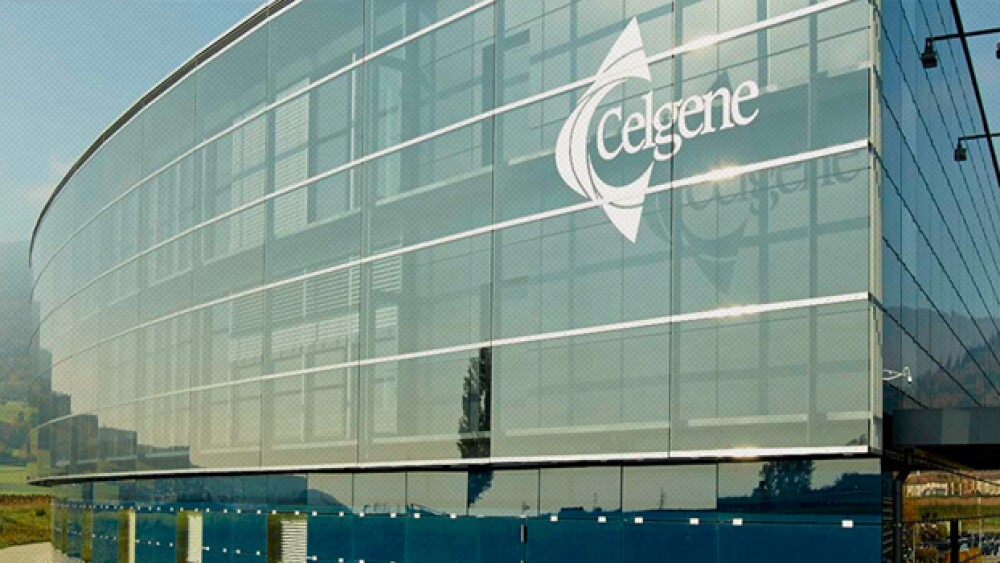With the American Society of Hematology (ASH) Annual Meeting held this weekend, Celgene and its various collaboration partners had several important presentations.
With the American Society of Hematology (ASH) Annual Meeting held this weekend, Celgene and its various collaboration partners had several important presentations.
First off, Celgene and bluebird bio presented initial data from their ongoing Phase I clinical trial of bb21217, a next-generation anti-B-cell maturation antigen (BCMA) CAR-T therapy for relapsed/refractory multiple myeloma. The patient population had received at least three prior treatments, including a proteasome inhibitor and immunomodulatory agent, or are double refractory.
“Patients with multiple myeloma often undergo multiple cycles of treatment because there is currently no known cure for this aggressive cancer,” stated Nina Shah, University of California, San Francisco, who gave the oral presentation. “The early clinical data from this Phase I study show manageable safety findings, and most patients in this initial group achieved an objective response. Future study is needed to assess durability of response at the current dose, as well as safety and activity at higher doses of bb21217.”
Twelve patients in the study received bb21217. Of those 12, 83 percent had an objective clinical response by International Myeloma Working Group (IMWG) criteria. At the time of the data analysis, there were ongoing responses in nine out of 10 patients, including three with a complete response (CR) or stringent complete response (sCR), and two reported a very good partial response (VGPR) and four had a partial response (PR).
Secondly, Celgene and Acceleron Pharma released data from their Phase III MEDALIST clinical trial evaluating luspatercept in patients with ring sideroblast (RS+) myelodysplastic syndromes (MDS)-associated anemia who require red blood cell transfusions who had failed, were intolerant to or ineligible for erythropoietin therapy.
The trial met its primary endpoint of RBC transfusion independence (RBC-TI) for eight or more weeks during the first 24 weeks of the trial. It resulted in a statistically significantly greater proportion of patients achieving RBC-TI greater than or equal to eight weeks compared to placebo.
“Severe anemia resulting in red blood cell transfusion dependence is a significant challenge for patients with low- and intermediate-risk MDS,” stated Alan F. List, president and chief executive officer of Moffitt Cancer Center. “Those who become resistant or refractory to currently available treatments have limited alternatives. The findings from MEDALIST are very exciting as they support the hypothesis that targeting red blood cell precursor maturation could help to address patients’ anemia and slow them to achieve transfusion independence.”
And finally, Celgene announced results from its Phase III AUGMENT trial, showing that Revlimid (lenalidomide) in combination with rituximab showed superior progression-free survival (PFS) in relapsed/refractory indolent lymphoma compared to people who received rituximab plus placebo. The median PFS in patients receiving the combination was 39.4 months compared to 14.1 for those who received rituximab and placebo.
Overall survival (OS) was a secondary endpoint, which showed a positive trend in the Revlimid-rituximab arm compared to the control arm, with a two-year OS rate of 93 percent compared to 87 percent. Overall response rate (ORR) was another secondary endpoint, and it was 78 percent in the Revlimid-rituximab arm compared to 53 percent in the control arm.
“These data represent a potential new treatment strategy for patients with relapsed/refractory indolent non-Hodgkin’s lymphomas,” stated Alise Reicin, president, Global Clinical Development for Celgene. “We are advancing regulatory submissions in the first quarter of 2019 to bring this important combination to patients as soon as possible.”





